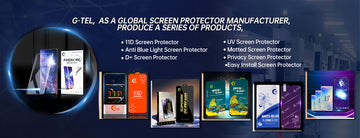Do UV-Blocking Tempered Glass Screen Protectors Really Protect Your Eyes?
Do UV-Blocking Tempered Glass Screen Protectors Really Protect Your Eyes?
UV protection is often marketed as a key benefit of tempered glass screen protectors. But does it really matter for eye health? Let’s break down the science and help you make an informed decision.
1. What Is UV Radiation and How Does It Affect Eye Health?
Ultraviolet (UV) radiation is categorized into:
-
UVA (315–400nm) – penetrates deep into the eye, possibly causing retinal damage
-
UVB (280–315nm) – causes surface-level damage, including cataracts and corneal burns
⚠️ Risks of Prolonged UV Exposure:
-
Short-term: eye strain, dryness, photophobia (light sensitivity)
-
Long-term:
-
Cataracts (primarily linked to UVB)
-
Macular degeneration (UVA may contribute to retinal cell damage)
-
Eyelid skin cancer (especially with chronic UV exposure)
-
📌 Important Note: Phone screens (LCD/OLED) emit negligible UV radiation, so UV-blocking screen protectors are mostly redundant for indoor use.
2. Do UV-Blocking Screen Protectors Actually Work?
🔍 How They Work:
-
UV-absorbing coatings like titanium dioxide or zinc oxide
-
Specialized UV-filter adhesive layers
🧪 Effectiveness Comparison Table:
| Type | UV Protection | Best Use Case |
|---|---|---|
| UV400 Standard | Blocks 99% UVA/UVB | Outdoor sunlight |
| Regular Protector | No UV protection | Indoor phone use only |
👁 American Academy of Ophthalmology (AAO) Statement:
-
Indoors: UV screen protectors offer almost no benefit
-
Outdoors: May reduce glare slightly, but UV400 sunglasses remain the most effective defense
3. Blue Light vs. UV Protection: What’s More Important?
Many screen protectors advertise both, but they target different risks:
| Feature | Target | Primary Benefit |
|---|---|---|
| UV Block | Ambient UVA/UVB | Helps prevent long-term damage |
| Blue Light Filter | High-Energy Visible (HEV) 400–450nm | Reduces eye fatigue, protects sleep cycles |
✅ Recommendation: Choose a blue light filter if you use your phone heavily indoors.
⚠️ Caution: Cheap filters may only apply a yellow tint without meaningful blue light reduction. Look for TÜV-certified options.
4. Better Alternatives to Protect Your Eyes
Instead of relying solely on UV screen protectors, try these proven strategies:
-
Follow the 20-20-20 rule: Every 20 minutes, look 20 feet away for 20 seconds
-
Adjust screen brightness and enable night mode or blue light filter
-
Wear UV400 sunglasses outdoors
-
Use certified blue light filters (TÜV, SGS tested)
5. Should You Buy a UV-Blocking Screen Protector?
| Your Usage | Recommendation |
|---|---|
| Mostly indoor | ❌ Not necessary; use a high-transparency regular protector |
| Frequent outdoors | ✅ Consider a UV400 protector plus sunglasses |
📌 Tip: Always choose protectors with ≥90% light transmittance. Cheap UV filters may degrade screen clarity or touch sensitivity.
✅ Final Verdict
UV-blocking tempered glass screen protectors:
-
✅ Provide minor glare reduction outdoors
-
❌ Offer little to no benefit indoors
If eye protection is your goal:
✔ Reduce screen time
✔ Use high-quality blue light filters
✔ Wear UV400-rated sunglasses outside


